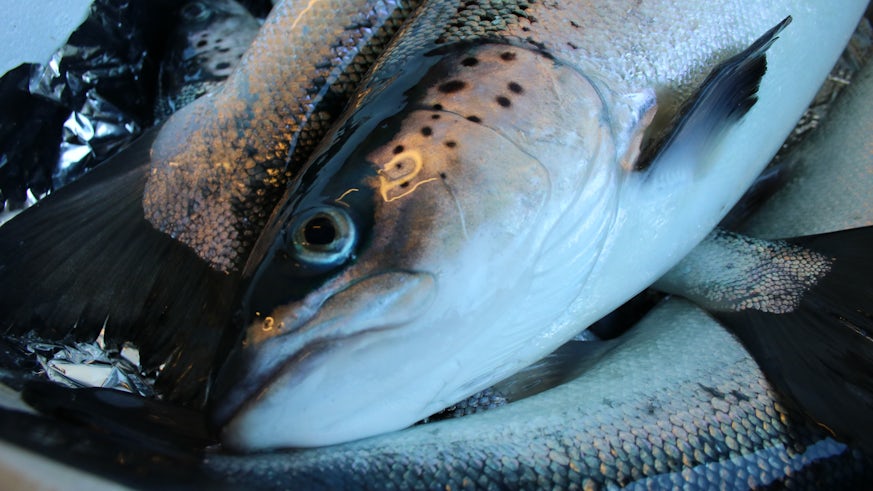Uncovering the impact of domestication on Atlantic salmon eye size
29 September 2021

Over 15 generations of breeding salmon in captivity for food, farmed salmon have developed smaller eyes than wild salmon which could reduce their survival capacity when escaping captivity and have negative consequences for their offspring.
Dr William Perry, postdoctoral researcher at the Water Research Institute, is part of an international team of researchers investigating the eye size of farmed fish. The team bred salmon from farmed, wild and hybrid (farmed and wild) backgrounds together from eggs in tanks at the Institute of Marine Research, Norway and the Marine Institute, Ireland, and in the Srahrevagh River, Ireland. Eye size was then measured in the freshwater and saltwater life stages of the salmon.
In all the tank-based experiments in Norway and Ireland, the researchers found that farmed fish had smaller eyes relative to body size when compared with their wild counterparts. Even though they had been reared in the exact same conditions, hybrids were found to have an intermediate eyes size. Intriguingly, when reared in the river, no differences in eye size were seen between wild and farmed salmon, which could mean that the small eyed farmed fish were unable to survive in the wild.
Dr William Perry says: 'It was exciting to discover this genetic reduction in eye size seen in farmed fish, but the fact it was not seen in salmon reared in the river was intriguing.'
What element of fish farming may have caused this reduction in eye size is not yet known, but it could be due to how energetically expensive it is to grow eyes, and the fact that in captivity salmon do not need good eyesight to hunt or escape predators. Food appears automatically, and predators are kept out.

We believe that fish with smaller eyes were less fit for a life in the wild and were unable to find food or escape the sharp bill of a heron! When in captivity, the salmon do not have to deal with these pressures.
An alternative explanation could be that smaller eyes are a response to stress, or the artificial lights used in aquaculture. The fact that these animals are reared in tanks where they may experience unnaturally high levels of artificial light may mean that there is a benefit to smaller less light-sensitive eyes.
Tens of millions of farmed salmon have escaped into the wild since the 1970s, and have been breeding with wild fish to form hybrids. These new findings highlight the risks that they could face in the wild. Dr Joshka Kaufmann, a postdoctoral researcher at University College Cork and co-lead of the research explains: 'Escapes from farms pose a threat to the genetic integrity of wild Atlantic Salmon populations and impact population abundance in the long-term.'
To find out more, read the full publication here or contact Dr William Perry at perryw1@cardiff.ac.uk.
Share this story
For more information, visit the Water Research Institute website.
